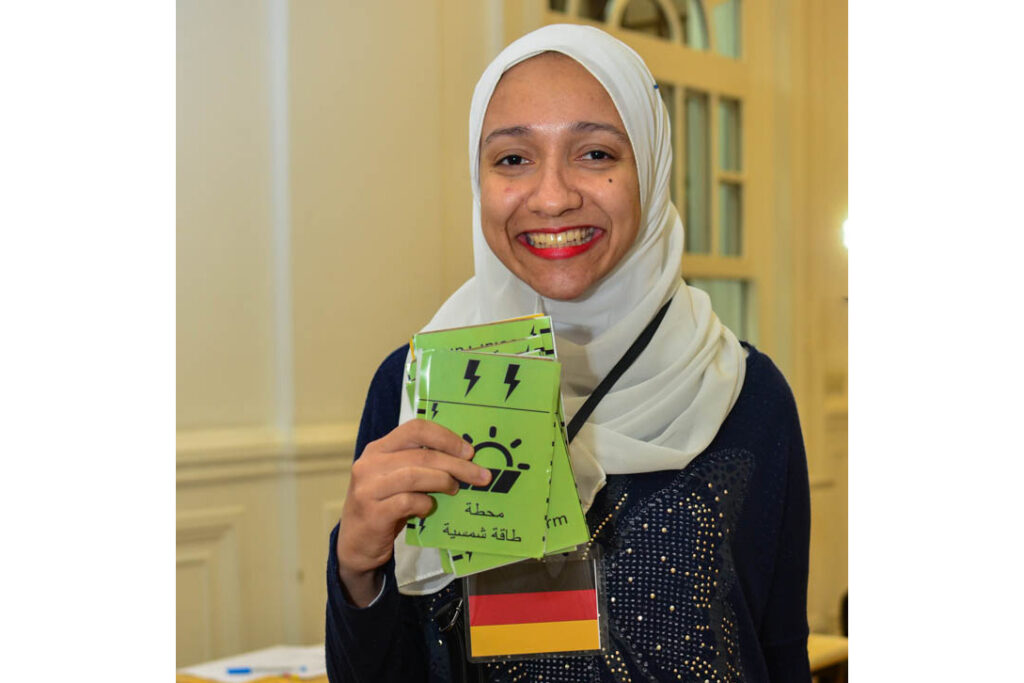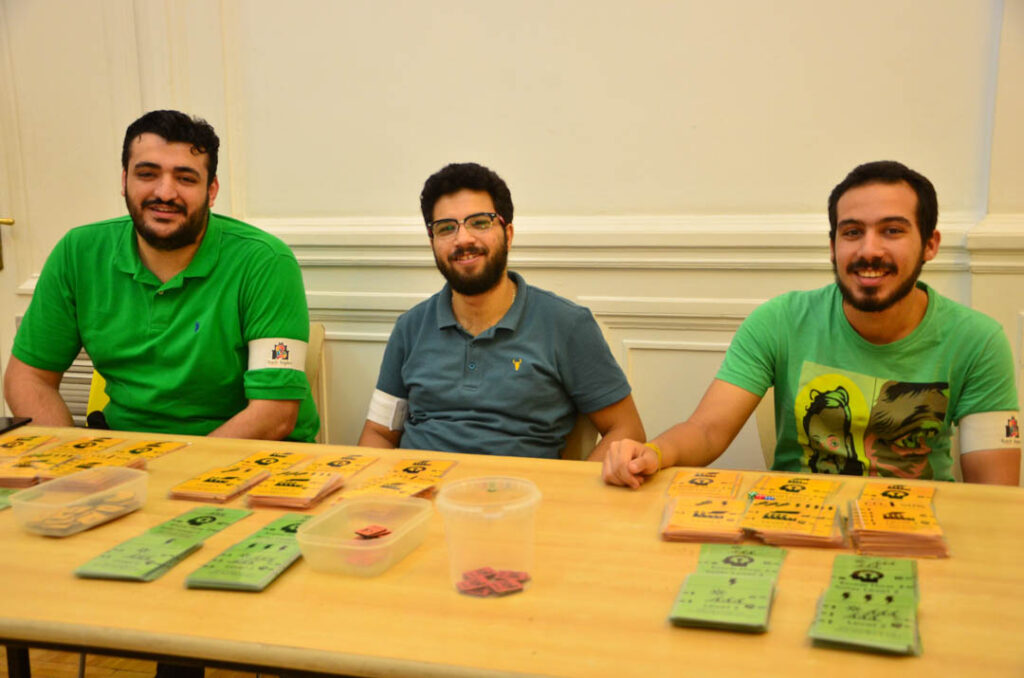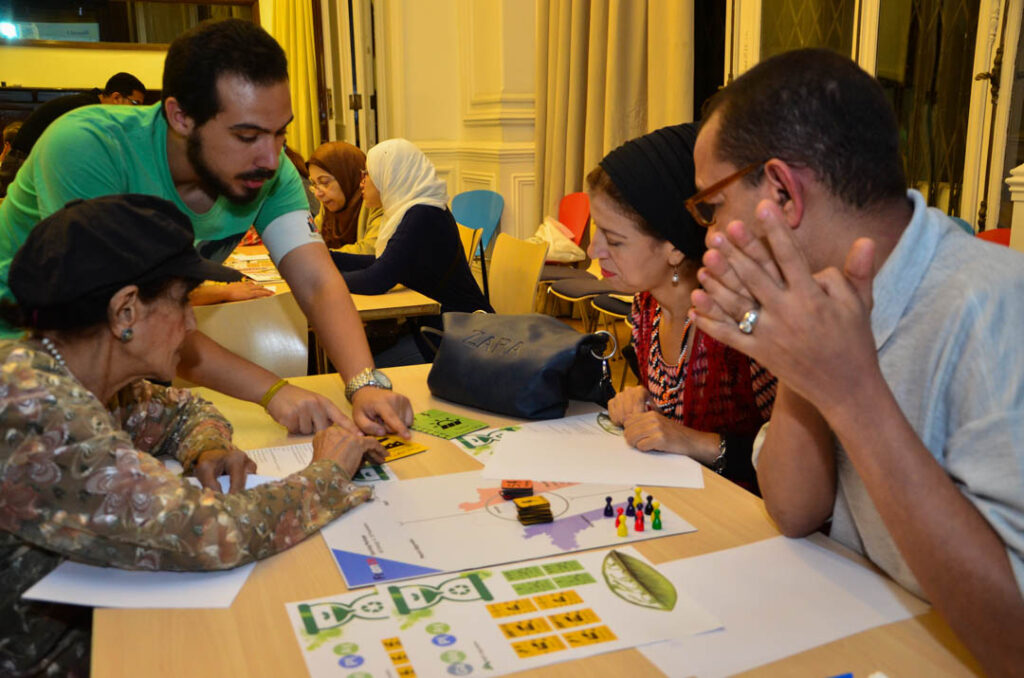Digital Climate Education and Open Access to Knowledge
2018
May 13th
At German Academic Exchange Service (DAAD), 11 Al Saleh Ayoub Street, Zamalek, Cairo, Egypt.
On Sunday 13 May 2018, the 53rd Cairo Climate Talks were held at the premises of the German Academic Exchange Service (DAAD) in Zamalek under the title of “Digital Climate Education and Open Access to Knowledge”.
In his opening remarks, Julius Georg Luy, Ambassador of the Federal Republic of Germany in Cairo, thanked all participants and partners of the event, including the German Climate Consortium (DKK) for their efforts in spreading climate knowledge. “The last climate conference COP 23 did take its slogan “Further, Faster, Together” seriously.” He stated “Yet these advancements are still not sufficient to meet the challenge. In some countries, climate deniers reach the highest echelons of government. Therefore, it remains key to further raise awareness and to spread knowledge about climate change and about what measures can be taken to counter it.” The Ambassador then welcomed the delegation from the German Climate Consortium and the representatives of Egyptian Academia and Civil Society taking part in the panel.
In her opening remarks, Ms. Lilly von Stackelberg, program coordinator at the German Academic Exchange Service (DAAD), expressed her excitement for being host and partner to the Cairo Climate Talks. “Our mandate is to spread science and knowledge. This why we have been a stakeholder in these talks from the beginning and bring our experience to the fore in order to explore how science fits within the discussion.” She continued to express the importance of technological advancement in the learning and education processes. “Technology is a very powerful tool that needs to be perceived as a solution rather than a challenge” she explained. “Platforms such as the MOOC are compelling examples of how the conscious use of technology can deliver results and create change.”
Before the panel, the German delegation gave a series of keynote addresses about the different courses offered by the MOOC. Dr. Christiane Textor, Head of the German IPCC Coordination Office, kicked off with a brief introduction to the Intergovernmental Panel on Climate Change (IPCC), its formation and historical background, responsibilities and successes. “The IPCC is an impartial organization; the best scientists are nominated by their respective governments.” She explained “One of the priorities of the IPCC is ensuring diversity and gender balance, which it has been successful in doing.” Lastly, she pointed out that science has the last word in the IPCC reports, but it needs to be coupled with political will to ensure the change intended becomes a reality.
Following Dr. Textor’s presentation, Dr. Gernot Klepper, Vice-Chair of the German Climate Consortium (DKK), gave a presentation about climate economy. Dr. Klepper explained that government policies are complementary to business approaches. However, private businesses are realizing the importance of incorporating climate policies in their approach. Furthermore, he explained that there have been advancements in climate economic policies. Feed-in-tariff laws across the European Union and in many developing countries are an example. “One of the hurdles of cooperation in climate and energy policies are regional and global politics, but we are hoping that governments soon realize that successful cooperation requires overlooking political differences” he concluded.
Ms. Marie-Luise Beck, managing director of the German Climate Consortium, gave a presentation about the Massive Open Online Course titled “Climate Change Risks and Challenges”. In her presentation, she talked about the importance of spreading knowledge and awareness about climate science and policies. She also highlighted the importance of making this knowledge free and accessible, to that end, the MOOC has been made available for free to all users from around the world. Dr. Textor and Dr. Klepper’s presentations are two of the six disciplines covered by the MOOC. Ms. Beck also addressed the importance of partnerships with German and international organizations in spreading the message of the MOOC.
Mr. Abdelrahman ElGammal, board member of Youthinkgreen, started the discussion with a question to Dr. Omar Ramzy, dean of the economics and business faculty at Heliopolis University, Egypt’s first sustainable development university. Asked about how Heliopolis University integrates sustainability policy into its curriculum, Dr. Ramzy replied that sustainable development is interdisciplinary. “We are connecting the three faculties together, the faculty of business and economics, the faculty of pharmacy and drug technology and the faculty of engineering, and integrating sustainable development across the faculties.” He explained: “We also have the core program which addresses art, music, and acting. By doing so, the students learn how to connect to their surroundings. Without this connection, we don’t think teaching sustainable development would be possible. We also offer a minor in Climate Change and we are currently working with the higher council of universities to offer a sustainable development master degree.” When asked about whether Heliopolis University is offering online courses, he explained that in respect to Egyptian regulations, it’s not possible to depend on online courses 100%, but they do use it to deconstruct and reconstruct ideas. “We are also using other tools such as videos, podcasts, and we employ student feedback systems which are more convenient and interactional for the students.
Ms. Beck was asked about intentions to translate the MOOC, so it reaches a larger audience. To which she replied, “We started in German, it was very successful and spread very widely, which is why we decided to spread it and make it accessible in English and luckily, the project is funded by the Federal Foreign Office.” Then she explained that translating such rich scientific content requires more than a contract with a translation office. “We need to make sure experts review the translated information and that the quality of the content is as strong and reliable as it is in English” she added.
Ms. Nancy Salem, chief researcher at the Access to Knowledge for Development center (A2K4D) introduced the solar data platform. “The center started at AUC School of Business and it came as a result of our belief that it is important to not only acquire knowledge, but also produce knowledge.” About the centre’s work, she said: “We study contextualized knowledge production and one of the things we’ve been working on is solar energy in Egypt. We wanted to support this sector.” Entrepreneurs as well as suppliers have access to this platform. Ms. Salem explained that preliminary research has been going on for years, but it’s fragmented and there was no common resource, which has inspired the solar data platform. “You can go on the website and consume the available data, but you can also upload knowledge about your own experiences on the website.” She continued “We do research, but a lot of the information on the platform is by individuals and communities rather than by the researchers.” She added: “We also work on data visualization and graphics to make the information easily processed and digested by those who are not experts in the field”. When faced with a question about Germany’s energy transition and possibility of copying the models to other countries, Dr. Klepper explained that copying the experience is not always the best solution. “German consumers paid for the energy transition. We have learned a lot about how to do it better. We should not simply copy something. Instead, we can to learn from our experience to make it better and more suitable for different contexts”.
Dr. Textor referred to the Paris Agreement as one of the results of the work of the IPCC. “Science has delivered the Paris Agreement, we are now waiting for the implementation”. She stressed on the importance of public understanding of the Paris Agreement and of climate policy, so the public can support and pressure policymakers.
Meet our Panelists
Dr. Christiane Textor
Head of the German IPCC Coordination Office
Dr. Gernot Klepper
Vice-Chair , German Climate Consortium (DKK), Kiel Institute for the World Economy
Marie-Luise Beck
Management Director, German Climate Consortium
Dr. Omar Ramzy
Dean of the Faculty of Business and Economics, Heliopolis University
Nancy Salem
Senior Research Officer, A2K4D
Dr. Tina Jaskolski
Associate Director, RISE
Meet our Moderators
Abdelrahman ElGammal
Youthinkgreen board member
Venue / location
At German Academic Exchange Service (DAAD), 11 Al Saleh Ayoub Street, Zamalek, Cairo, Egypt.



Are you interested? Don’t miss out by registering to our events. We hope to see you there.
